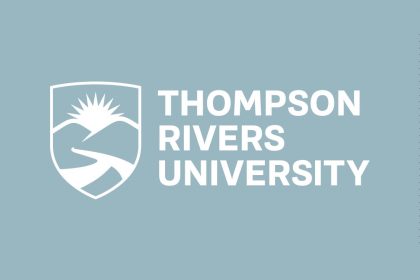Informed by advisory and working groups composed of faculty, staff, and students from B.C.’s post-secondary sector over the past three years, with representatives from large campuses as well as rural institutions, BCcampus has developed an open educational resource (OER) to improve prevention and response to sexual violence. The OER is now available for adoption and adaptation across most learning platforms.
Post by the BCcampus editorial team
In 2018 the B.C. government launched an information campaign to address sexual violence and misconduct on campuses throughout the province, creating awareness for this issue while supporting the Sexual Violence and Misconduct Policy Act passed in 2016.
As part of the Sexual Violence Prevention and Response Training series, BCcampus led a working group of local professionals to identify what the sector required to provide a high-quality, accessible resource that would create awareness of the issue. The result is an openly available asset that outlines how to safely intervene to prevent sexual violence and the importance of consent in all relationships.
The advisory group developed and refined the OER into its current form: a 75-minute, self-paced, non-facilitation training program delivered online. The resource is provided in an asynchronous model, which allows students to complete it within their own level of comfort. The module can be tracked via an institution’s learning management system (LMS).
“As a member of the development committee,” said Cori Andrichuk, manager of Student Life & Athletics at the College of the Rockies, “I was able to experience firsthand the thought and intention that BCcampus displayed in selecting experts who were able to work together and assemble this resource. They put together a group of individuals representing institutions large and small, where we learned that we’re not alone: everyone is struggling to find or create the right content for their faculty, staff, and students. As a rural institution, it would have been very difficult to put together the panel of experts required to make this such an effective resource.”
The training guide is based on the following principles:
- Accessibility
- Culturally located
- Decolonial approach
- Evidence-informed
- Gender-inclusive
- Intersectionality
- Trauma-informed
- Survivor-centred
“This project reminded me of the power of OER and how BCcampus is doing a fantastic job of making these vital topics available to campuses across the province,” said Sara LaMarre, mental health strategist at Vancouver Island University. “There are lots of different campuses with various needs, so providing access for all is such a powerful issue and gives students the best possible experience, no matter where they’re going.”
Put To the Test
Once the OER was developed, we needed to ensure it was fully functional across the range of LMSs used throughout the province. The Justice Institute of British Columbia built the initial iteration of the OER, and the College of the Rockies, Vancouver Island University, and University of British Columbia thoroughly tested the resource to ensure it was technically sound and accessible. The institutions tested the OER on Moodle, Desire2Learn, and Canvas, which provided us with confidence the resource is agile enough to work across most of the LMSs used in B.C.
“The implementation guide that came with the resource covered pretty much everything,” said Doris Silva, director of Student Affairs at the College of the Rockies. “We gave the guide and step-by-step instructions to our IT team to configure our Moodle installation, and they took it from there. It was very self-explanatory and didn’t take long to upload to the LMS.”
Articulate Rise
To provide users with the ability to update and adapt the resource for their various installations of Safer Campuses, we integrated Articulate Rise, a responsive course-authoring tool that provides cross-platform support. As there is an additional cost to implement this robust tool, BCcampus provided each of the 25 supported post-secondary institutions of B.C. with a $2000 grant.
“We’re hoping to use Articulate Rise to help people learn how to be an active online student,” said Doris. “Previously, we were using our LMS to share this info during our student orientation, but it wasn’t as intuitive for new students. With Articulate Rise, we can create user-friendly training for the Safer Campuses content as well as develop other resources to engage and inform our faculty and students.”
Special Thanks
“This was challenging work,” shared Robynne Devine, senior project manager of Collaborative Projects at BCcampus. “Jewell Gillies was the lead for the Indigenous components of this project, and Tasnim Nathoo provided her experience with integrated and holistic approaches to healing from trauma and other related issues. Jewell and Tasnim brought humility and honesty to the project, helping us avoid the tendency to shy away from the reality of the difficult situation. This was a challenging topic, and we’re grateful to have had so much help from so many committed, experienced, and trusting participants working together to bring this to life.”
Notable Quotes:
“Vancouver Island University cares deeply about creating a safe environment for everyone, including our faculty, staff, and students. We are excited to use this OER to help all students, and it was a pleasure to partner with BCcampus. We’re grateful for the opportunity to have an impact on something that will provide so much value across the system.”
– Sara LaMarre, mental health strategist, Vancouver Island University
“BCcampus, and the group they convened to create this resource, did this in a very thoughtful way. It’s trauma-informed and includes the Indigenous perspective from the very beginning. We couldn’t have done this at the regional level at this level of quality. It has helped us advance this training so much faster than if we’d been fully responsible, and it helps regional campuses have a consistent message.”
– Doris Silva, director, Student Affairs, College of the Rockies
Learn More:
The featured image for this post (viewable in the BCcampus News section at the bottom of our homepage) is by Karol D from Pexels
